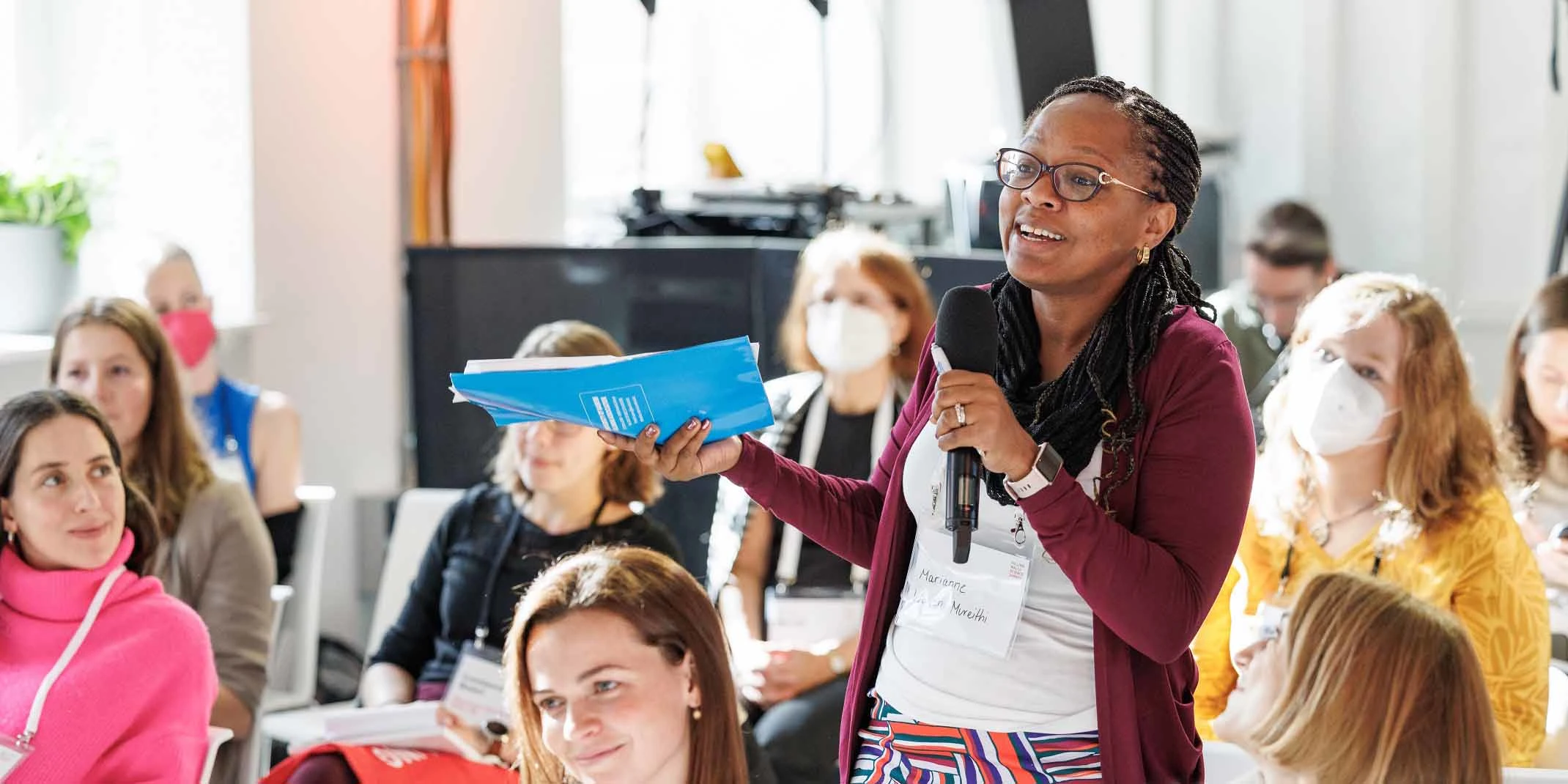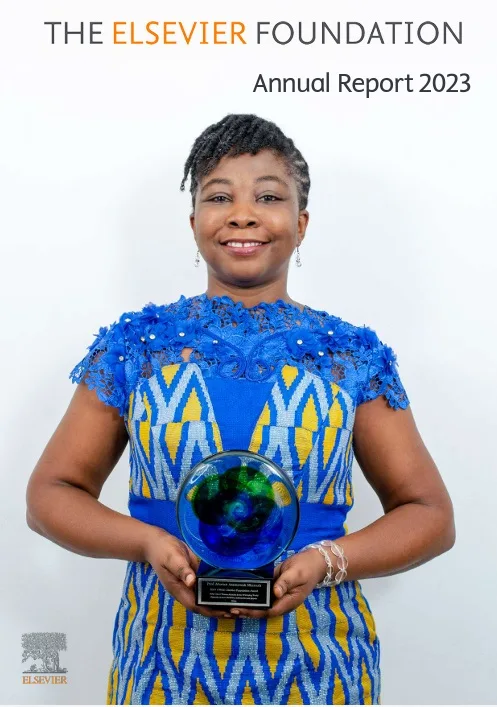How the Elsevier Foundation is enabling women's leadership to address global challenges
2023년 5월 3일
저자: Rebecca Clear

Annual report examines inclusion, climate action, and other Sustainable Development Goals
Last month, Ylann Schemm, Executive Director of the Elsevier Foundation 새 탭/창에서 열기 joined our partners, The World Academy of Sciences (TWAS), in their headquarters in Trieste, Italy, for an inspiring workshop for our recently awarded gender equity and climate action project grants winners.
This workshop was a powerful reminder of the critical role of women's leadership in addressing global challenges. The insights shared by speakers as well as the participants themselves underscored the importance of collaboration and cross-sectoral partnerships in advancing gender equity and climate action. As one participant illustrated, “In Kenya, we have a proverb that says: if you want to educate a nation, educate a woman. Women are progressive, they share the knowledge. They are the most vulnerable and mostly affected by climate change, and they need to understand where this problem is coming from and that solutions can come from them.”
This partnership embodies the important role played by the Elsevier Foundation in tackling a cross section of issues, and as we launch our Annual Report 새 탭/창에서 열기, we are prompted to ask some important questions about equity in research and health, and indeed about the Foundation’s role in tackling the challenges to bringing about greater inclusion.
The 2023 Elsevier Foundation Report
Established in 2006, the Foundation and has since worked with over 100 partners in 70 countries, providing around $16 million in grants to projects supporting climate action, gender equity, inclusive health and research, and more.
Read the report

Elsevier Foundation Annual Report 2023
For example, how can we make research more inclusive of the Global South? This is the critical question that Elsevier’s 2022 report Pathways to Net Zero: Global South Research in the Transition to Clean Energy raises. The report makes a compelling case: for clean energy and carbon capture research to succeed, researchers in the Global South need to be fully included in the conversation.
From the report, we learn that only a small proportion of Net Zero Energy research is conducted in and for the Global South. Researchers from developing countries accounted for a fifth of publication authors and 9% of international collaborations while a very small percentage of researchers conducted Global South fieldwork.Since we first launched our Innovative Libraries in Developing Countries and New Scholars programs back in 2006, inclusive research with a geographic and a gender lens has been one of the Elsevier Foundation’s prime drivers.
All research, but especially research to advance the UN Sustainable Development Goals, benefits from South-South and South-North collaboration with greater geographic and gender balance among researchers.The Elsevier Foundation works through partnerships to drive this effort, applying increasingly intersectional perspectives to our programs. And intersectionality is crucial.
From a 2018 analysis undertaken by Elsevier’s International Center for the Study of Research, we see that SDG research that include sex or gender considerations is low — 14% for Zero Hunger and just 4% for Climate Action — pointing to the critical need to review SDG targets from a gender perspective to ensure that the outcomes benefit women and men equally.
At COP 27 this past November, we announced 8 new UNESCO/TWAS gender equity and climate action catalyst grants at the 2022 United Nations Climate Change Conference. Ranging from sustainable home-gardens in Guatemala, to advancing climate literacy among women in Nepal and improving agroforestry livelihoods in Congo, the grants are concrete, action oriented and led by women researchers.
The common thread? All of them strengthen gender equity, address the climate-related needs of local communities in the Global South and transfer knowledge from scientific research to real-life scenarios.More recently, in February we awarded the 2023 OWSD/Elsevier Foundation Awards for Early-Career Women Scientists in the Developing World to 7 talented women for their research advancing UN SDG 2 Zero Hunger.
A quarter of all women around the world are engaged in agriculture which makes them more vulnerable to both climate change and resource scarcity. Our aim is to spotlight the important food security research undertaken by women from the Global South who are inspiring role models for communities most affected by this issue. Visibility and recognition will help them build their international networks and careers, ensuring that they bring much needed perspectives to their research communities.
Working towards a new strategy
The world is at a defining moment, emerging from a global pandemic, plagued by inflation and experiencing dramatic changes to our ecosystems. It is critical that all actors and sectors contribute actively to the UN SDGs through their areas of greatest strength.
At the same time, stocktaking is essential for every organization – a moment to review the inventory and consider whether the strategy is still a good fit. The Elsevier Foundation is no exception and over the past few months, we have revisited our programs, recalibrating our roadmap to connect more deeply with the UN SDGs and Elsevier’s wider strategy. With only 7 years left to achieve the Goals, we believe strongly that we need to accelerate our impact by raising our visibility and more fully leveraging resources, partners’ strengths and Elsevier’s unique contributions.
Through these means, we will continue to carefully review and calibrate our strategy for maximum impact, shaping unique intersectional partnerships to support more inclusive research and health communities.
And so, 18 years since launch, we have emerged stronger from the inventory of our strengths and challenges. In 2023, we look forward to sharing our new purpose built strategy for the road ahead.
기여자

RC